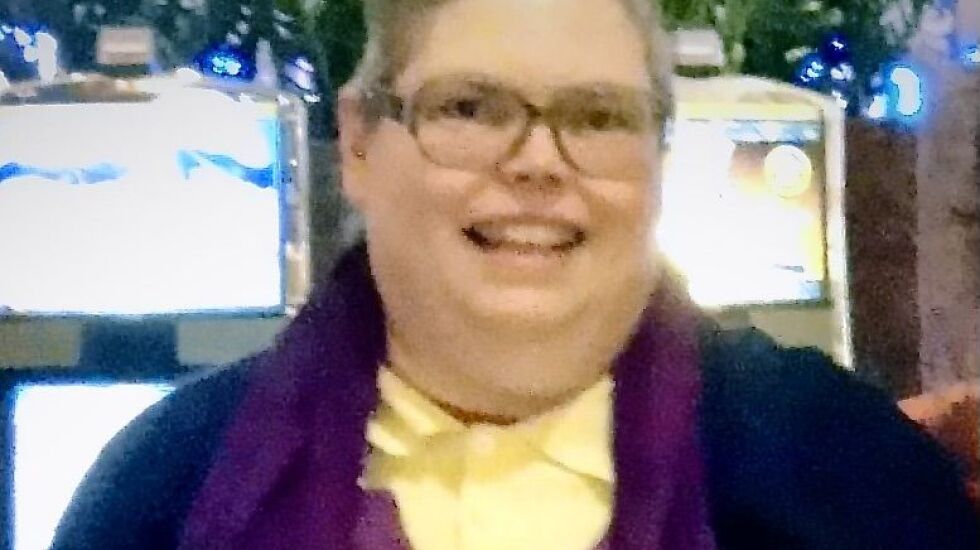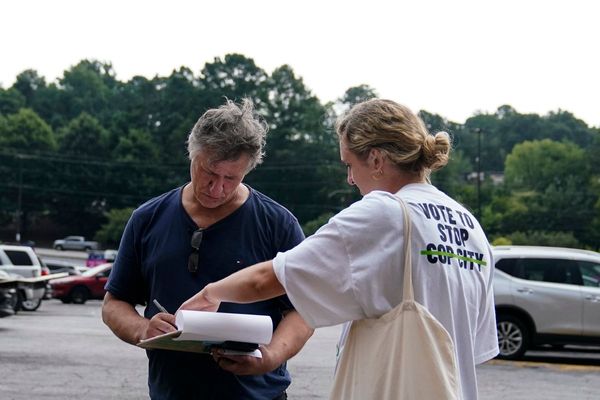
With her market-tracking charts under her arm, Alice Kelley walked the notoriously macho trading floor of the Chicago Mercantile Exchange.
She mostly avoided entering the rough and tumble trading pits and placed orders through brokers who’d enter the fray on her behalf to buy or sell. But she could hold her own on the rare occasion she did.
“It was a physical thing down there in the pit. Some of the younger guys who came there to make their fame and fortune were pretty male chauvinistic, and she wouldn’t put up with it,” said Ygal Baruch, a friend and fellow trader. “She would read you the riot act, and say, ‘You’re not in high school any more, and you’re not going to push me around.’”
Ms. Kelley, who began trading at the Mercantile Exchange in the 1970s and became a member of the Index and Option Market in the 1980s, didn’t have many such run-ins. Experienced traders knew and respected her.
Ms. Kelley died Oct. 16 from lung cancer. She was 73.
Trading was practically in her blood. Ms. Kelley’s late mother, Sonia Fahrney-Kelley, was one of the first female commodity traders in Chicago.
Ms. Kelley grew up, in part, in a swanky Gold Coast hotel, where her parents stayed, friends said. Her father, James Fahrney-Kelley, was a physician and an investor.
She was a child prodigy who began attending Lake Forest College at age 14. Due to an administrative error, she was placed in a dorm with seniors, according to author Cari Lynn, who extensively interviewed Ms. Kelley for a book about female traders called “Leg the Spread: A Woman’s Adventures Inside the Trillion-Dollar Boys Club of Commodities Trading.”
“I was their mascot, so to speak,” Ms. Kelley, who was an only child, recalled in the book.
After graduation, Ms. Kelley’s mother discouraged her from getting into trading but soon realized it was a losing effort and showed her the ropes.
After the markets closed, Ms. Kelley could be found in a private club at the Mercantile Exchange, where a number of traders she was friendly with would sit for hours and chat about anything and everything.
“She was a walking encyclopedia,” said Bill Gruzynski, a friend and fellow trader. “She could talk about anything because she’d probably read four books about it.”
Ms. Kelley, who lived in the Presidential Towers downtown, had a collection that became so large that she rented a separate apartment in the same building just to store her books, friends said.
Ms. Kelley enjoyed regular trips to Las Vegas and loved hosting election night parties. In 2008, when Barack Obama was elected president, she held her party at the Metropolitan Club in the Willis Tower, and guests watched in amazement as crowds flocked to Grant Park for Obama’s victory speech.
As digitization diminished the traditional trading floor, Ms. Kelley worked from an office and later from a computer at her home.
“Alice was a master analyst,” said friend and former trader Joe Kline. “I met her as a young trader, and she just looked like somebody I should try to get to know because she was just insanely intelligent and a really great trader, and I thought I could learn something from her.”
Ms. Kelley was very generous and was known for picking up restaurant tabs, friends recalled.
“We always used to meet her for dinner at the Grand Lux on Michigan Avenue, and on one occasion, it was her birthday, and I said, ‘Alice, I’m paying,’ and I told the waiter, too, because she always picked up the check as soon as you went to the bathroom,” recalled Baruch with a laugh.
“But she did it again. She told the waiter I was cheap, and she’d provide a better tip,” he said.
“She was respected by all who knew her,” said friend and fellow trader Tim Clark. “She was thoughtful and did not flaunt her success.”
Ms. Kelley wasn’t the first female trader, but she was among a group that can be considered pioneers in the industry, Lynn said.
“She was a very generous, eccentric person. And she really was a trailblazer. There just really weren’t that many women around,” she said.
A private memorial is being planned.







